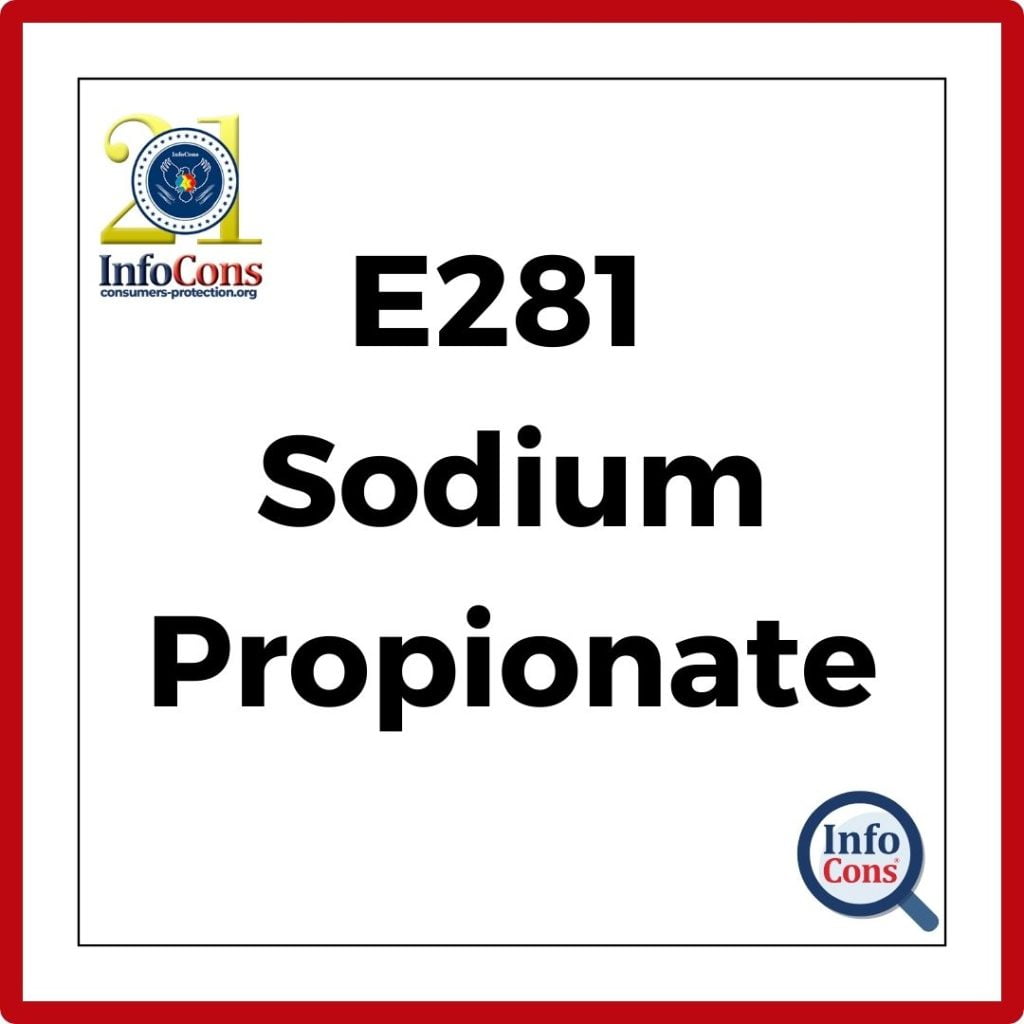What is Food Additive E 281 ?
E281, known as sodium propionate, is a widely used food additive in the food industry to inhibit the growth of molds and certain bacteria. Its main role is that of a preservative, extending the shelf life of various food products. Sodium propionate is particularly effective in bakery products but is also used in other processed foods.
Sodium propionate is the sodium salt of propionic acid, a natural fatty acid. Its chemical formula is C3H5NaO2, and it appears as a white crystalline solid that is highly soluble in water. The compound is odorless or has a slightly characteristic smell and is known for its antimicrobial properties, especially against molds.
Do You Know What Food Additives are ? InfoCons Consumer Protection Informs You !
What is the Recommended Daily Dose ?
Sodium propionate is approved for use in food products in many countries around the world. In the European Union, the European Food Safety Authority (EFSA) has approved its use.
There is no limit to the acceptable daily intake. Generally, when used within prescribed limits, E281 is considered safe for consumption.
In Which Products Can E 281 Be Found? InfoCons Consumers Protection Informs You !
Sodium propionate can be produced by bacterial fermentation with propionic acid. Alternatively, it can be synthesized by neutralizing propionic acid with sodium hydroxide.
Uses in the Food Industry
- Bakery Products: Sodium propionate is widely used in bread, cakes, and other bakery items. It helps prevent mold growth and extends the freshness of these products.
- Dairy Products: E281 is used in processed cheese products to prevent spoilage and prolong shelf life.
- Meat and Poultry: Sodium propionate can be added to meat products to inhibit the growth of harmful bacteria and molds.
- Other Foods: E281 is also found in confectionery, gelatins, puddings, and various processed foods.
Read also : Bisphenol A and phthalates in food packaging . InfoCons Consumer Protection Informs You !
Contraindications and Risks
Studies have shown that E281 is metabolized in the body and does not accumulate. However, like any additive, it should be used within recommended limits to avoid potential adverse effects.
While E281 is considered safe, there are some warnings:
- Allergic Reactions: Some individuals may be sensitive to propionates, though such cases are rare.
- Flavor: At higher concentrations, it can impart a slightly bitter taste to food products.
Conclusion
Sodium propionate (E281) plays a crucial role in the modern food industry as a preservative, ensuring the safety and longevity of various food products. Its widespread use is supported by regulatory approvals and extensive research confirming its safety.
As with all food additives, adhering to recommended usage levels is essential to maximize its benefits while minimizing any potential risks.
Download the InfoCons application !
Look for products that have a cleaner label or use natural additives. By installing Consumer Protection InfoCons App and scanning the barcodes of food products, you can find out the number and type of food additives they contain.
Author – Cosmina Nițu
Master in Nutrition – Infant and new born nutrition
Sources:
https://www.efsa.europa.eu/en/ – European Food Safety Authority (EFSA)
InfoCons – European Organization for Consumers Protection and Promotion of Programs and Strategies , a full member of the World Organization Consumers International, founding member of the Federation of Consumer Associations, and member of ANEC.
